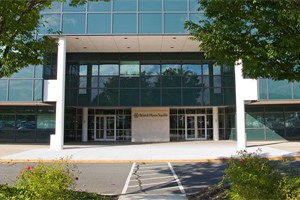 Bristol-Myers Squibb is paying a sizeable $300m upfront for IFM Therapeutics, getting its hands on two cancer programmes that will flesh out its cancer immunotherapy portfolio.
Bristol-Myers Squibb is paying a sizeable $300m upfront for IFM Therapeutics, getting its hands on two cancer programmes that will flesh out its cancer immunotherapy portfolio.
The privately-held biotech is working on drugs that stimulate STING and NLRP3 – two drug targets that IFM maintains play a key role in the immunological response to cancer, and such is BMS’ enthusiasm for them that the big pharma is prepared to pay $1bn apiece in milestones if a candidate from each programme makes it through to market and meets sales expectations.
Additional milestones could also be payable if other drugs from IFM’s stable advance through development, it said.
While still in preclinical development, the two programmes complement BMS’ existing immuno-oncology, currently headed by marketed checkpoint inhibitors Opdivo (nivolumab) and Yervoy (ipilimumab).
The big pharma has steadily added to its portfolio with a stream of candidates targeting molecules such as CD137 (urelumab), IDO (BMS-986205), and LAG-3 (BMS-986016) – all in phase II testing – which it hopes will work alongside its marketed drugs in new cocktails that will enhance tumour responses.
The company is not averse to paying princely sums for those assets as it tries to keep ahead of its rivals in the immuno-oncology sector, estimated to be worth tens of billions of dollars in the coming years. It paid $1.25bn – including $800m upfront – for IDO specialist Flexus in 2015 for example.
“IFM’s STING agonist programme includes a lead asset that accelerates the company’s efforts against this target, while the NLRP3 agonist program includes a potential first-in-class pipeline candidate,” said BMS in a statement.
Adding the new candidates “broadens our ability to investigate additional pathways across the immune system”, said BMS’ chief scientific officer Thomas Lynch.
Boston-based IFM will continue to function very much as it does today under co-founder and chief executive Gary Glick, maintaining its current personnel and premises but operating as a subsidiary of BMS.
It will also continue to work on another project outside of cancer – focused on NLRP3 antagonists for inflammatory diseases and fibrosis – and BMS has first refusal rights to that programme.




